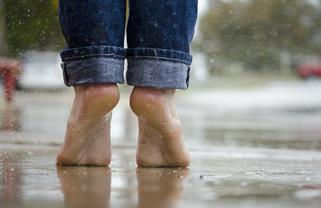Does Detox Work?
- Chin Ling
- Dec 30, 2014
- 3 min read
Updated: Dec 7, 2022
Back in the 1990s, if you'd mentioned detoxification to anyone, they'd have thought you were an alcoholic or a druggie. Fast forward several years and detoxing has morphed into cleansing - or is it the other way round?
There are conflicting opinions on detoxing. The hardliners and health writers detox and recommend that everyone else does too. You do your internal spring cleaning on a regular basis to flush out all the toxins from your body which otherwise can make you feel worse, maybe even ill. On the other hand, the sceptics say it makes no difference. There are doctors who disagree with detoxing because the body does it on its own.

Studies have been conducted which show no evidence that detoxifying works! That said, there are thousands of people who do go through the regime and feel better afterwards. That could be because it’s working on an aesthetic or even psychological level or it really could be because those people have cut out the booze and packaged foods, improved their diets and drunk more water. Whichever camp you fall into, here are some facts and guidelines to help you decide.
Why the need to detox? Do you suffer from any of the following : low energy, fatigue, weight gain, cellulite, bloating, skin problems? These could be symptoms of toxicity so to de-tox is to rid the body of these toxins that have accumulated from food, drink and the environment.
Fact: the average Briton consumes 11lb of food additives and 1 gallon of pesticides and herbicides. These come from, for example, meat where the animals were fed pesticide sprayed food and injected with hormones and anti-biotics to keep them free from disease. Even if you’re not a meat-eater, our fruit and veg are sprayed with pesticides and herbicides, so we can’t escape them. Even the average lettuce has so many chemicals that these penetrate through to the central leaves and a bag of washed lettuce can contain apparently as much chlorine as in a swimming pool. Scary? Actually, apples are one of the worst culprits for chemicals.
So why do we get the symptoms mentioned above? Detox experts say that all these chemicals floating around in our body put great strain on the ability of the kidneys and liver to process and flush them out, leading to a weakened immune system and colon. Therefore, we feel run down and eventually vulnerable to infections and illnesses. Concerning the skin, toxins accumulate just under the surface and interfere with normal healthy circulation which is why you may see skin problems. Just as frequent swimming in pools can put a coat of chlorine on the hair which you can remove with de-chlorinating shampoos, so detox will cleanse your insides.
Some people may equate a detox regime to a weight-loss diet. You can actually be within your healthy weight zone but still need to detox, but if you are overweight then weight loss might well be a side effect of detoxing.

When you detox, the aim is to help the body flush out excess toxins. Remember that your body is perfectly capable of detoxifying itself naturally but, depending on your lifestyle, if it is constantly being loaded with excess salt, sugar, fat and chemicals, natural detoxifying becomes a harder job and you may welcome some assistance.
The basic guidelines for detoxifying are to increase natural fibre, water, fruit and vegetables and to increase physical activity; to decrease saturated fats, sugar, salt, caffeine and alcohol. When to do it is important. There are some detox regimes as short as 1 day. If you’re impatient for results and want to try this then it could be quite drastic and could lead to headaches and mood swings. If you’re a first-time detoxer, a better approach may be to go for a longer regime and gradually wean yourself off the foods on the no-list. Author Jane Scrivner recommends 21-30 days because if you see detox as a step towards changing your life, this is how long it takes to change your habits. Once you’ve understood and practised the principles of detox on a long regime, then you can do mini regimes. Some people do one long regime a year and follow this up with short bursts of a few days or even just 1 day during the year.
Before you start, preparation is key. You may have seen nutrition programmes on TV where the case studies are required to re-stock their kitchen cupboards and fridge with ‘good’ foods. It is important to know what foods you will eat during your detox period, even have some recipes ready. The last thing you want is to get caught out at mealtimes with nothing prepared which has you reaching for a food which is not in your detox list. So, research recipes, adjust your shopping list and be prepared.





Comments